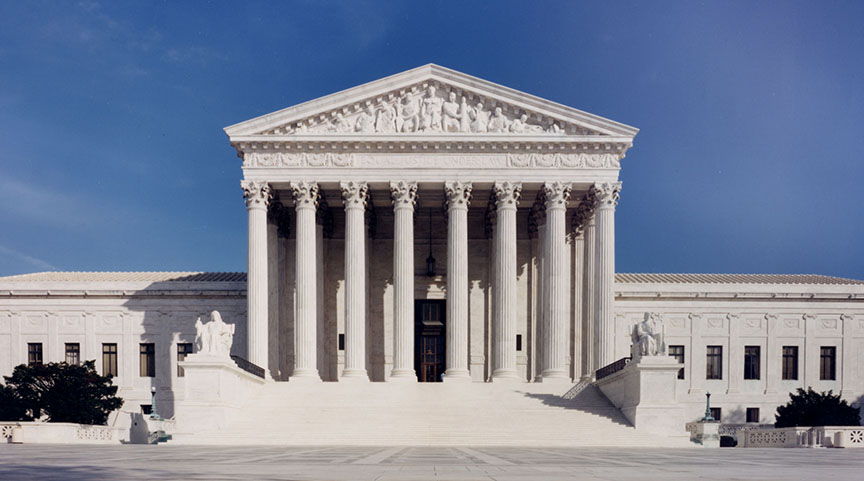U.S. Supreme Court ends efforts to right wrongs of the 1890 Mississippi Constitution
Published 6:44 pm Sunday, July 16, 2023
By Bobby Harrison
For decades, starting primarily in the 1950s, the federal courts have stepped in to right the wrongs of Mississippi’s racist 1890 state constitution.
Let it be known that on June 30, 2023, the U.S. Supreme Court said in its view the wrongs had already been corrected. The nation’s highest court announced its refusal on that day to hear a case challenging the centuries-old Mississippi Constitution provision that imposes a lifetime ban on voting for people convicted of certain felonies.
Trending
The provision, it was clear at the time — even boasted by the framers of that 1890 constitution — was enacted as one of the many tools to keep Black Mississippians from voting.
There was a racist belief then that African Americans were more prone to commit certain crimes, so they imposed the lifetime felony voting ban. At the time, the provision imposed a lifetime voting ban on a person convicted of bigamy or perjury, for instance, but not for someone who committed murder or rape.
The Mississippi Center for Justice and other groups that filed the lawsuit in 2017 on behalf of people who have lost their right to vote argued before the federal court that because of the racist origin of the provision, it should be struck down. The federal courts in landmark cases have struck down other Mississippi constitutional provisions designed to keep African Americans from voting, such as the poll tax and so-called literacy tests. And, of course, other provisions of the state’s 1890 Constitution not related to voting, such as the absurdly labeled separate-but-equal schools, have been famously invalidated by the federal court.
The Supreme Court justices did not say why they refused to hear the felony suffrage case.
But a majority of the U.S. 5th Court of Appeals ruled in 2022 the provision was not unconstitutional because “the racial taint” from 1890 had been removed by actions taken in the 1950s and 1960s by the Mississippi Legislature. The 5th Circuit reasoned that legislators passed resolutions approved by voters to add murder and rape as disenfranchising crimes. The changes removed the racial taint, the judicial majority ruled. Notably, the electorate was not given an opportunity to vote on whether to keep the original racially motivated crimes as disenfranchising crimes.
So, some including Supreme Court Justice Ketanji Brown, who disagreed with the majority decision not to hear the case, questioned whether the racial taint had been removed.
Trending
“Constitutional wrongs do not right themselves,” she wrote.
Those who say the racial taint had been removed perhaps would have a stronger argument if the Legislature would allow voters to decide if they want to maintain the provision banning people from voting for life even after they complete their sentence. Most other states — more than 40 — do not have lifetime bans on voting.
In 2020 Mississippians were given an opportunity by the Legislature to remove another provision placed in the 1890 Constitution to discriminate against Black people. And given the opportunity, Mississippians by an overwhelming majority — 79% to 21% — voted to remove the provision.
The provision required all elections for statewide office to be decided by the Mississippi House if a candidate did not obtain a majority vote and win a majority of the 122 House districts. The provision was placed in the Constitution to prevent Black residents, who were a majority at the time, from winning statewide office. The framers also had drawn House districts in a manner to keep Black candidates from winning a majority of them, thus making it difficult for African American statewide candidates to gain approval from the House.
Of course, voters had the opportunity to repeal the provision thanks to the action of the courts.
U.S. District Judge Daniel Jordan of Mississippi’s Southern District told state officials if they did not remove the provision that he might be inclined to do so himself. But first, he said, he hoped the Legislature would give the citizens the opportunity to remove the provision.
The federal courts took no such action on felony suffrage.
While the federal courts appear to have stopped its crusade on the racist provisions of the Mississippi Constitution, federal judges now are being asked to strike what some say is a racist Mississippi law. The law takes away the right to elect judges to newly created judicial posts in predominantly African American Hinds County and instead gives the white state Supreme Court chief justice the authority to appoint those judges. The right to elect judges is not taken away in any other area of the state except for Hinds County, where Black residents make up 75% of the population.
Whether the federal courts see a racial taint in the controversial law remains to be seen.
This analysis was produced by Mississippi Today, a nonprofit news organization that covers state government, public policy, politics and culture. Bobby Harrison is Mississippi Today’s senior Capitol reporter.






